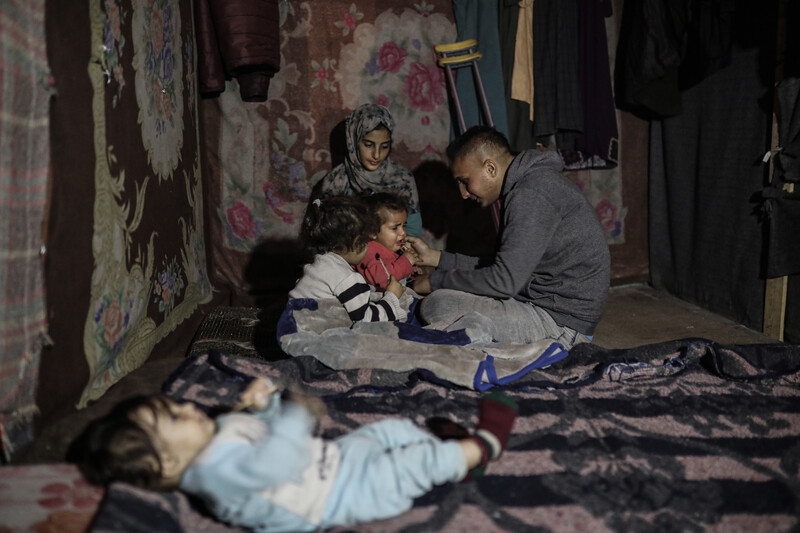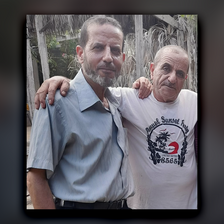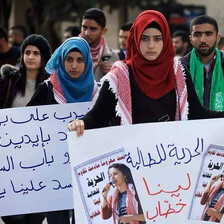The Electronic Intifada 30 December 2024

A family huddles together in their tent in Deir al-Balah. There is no privacy for the 1.9 million people displaced in Gaza.
APA imagesI was talking to my mother recently about the relentless bombing that rains down on us in northern Gaza and the gnawing hunger that slowly consumes us.
For her part, my mother shared the harsh realities of their life in a tent and the fear of winter and rain after their displacement to the shores of Deir al-Balah in the central Gaza Strip.
In the middle of our already depressing conversation, she told me something that filled me with both helplessness and dread.
My sister, Lina, recently got her first period. Under normal circumstances, this would be a significant moment. But in these conditions, it brought with it a wave of worry.
My mother’s voice trembled as she recounted the pain Lina was in. She wanted to take her to the hospital but knew there was no point with the endless flood of injured and gravely ill people needing urgent care.
In the middle of a genocide, a girl’s first menstruation felt like yet another mountain to climb.
Lina, still very much a child, now finds herself living in a cramped tent with five family members. There’s no privacy.
“I hear her crying at night, trying to stifle her sobs so her brothers, sleeping beside her, don’t hear,” my mother said. “How can I help her when I have nothing to give?”
Unattainable luxury
Privacy, a simple necessity, has become an unattainable luxury in Gaza. Every movement, every moment in that tent felt exposed.
Then there was the issue of sanitary pads - another scarce commodity in Gaza. Even when available, their prices are exorbitant.
My mother did her best to improvise, fashioning makeshift pads from old cloth, knowing all the while that these attempts could never truly ease Lina’s discomfort or embarrassment.
The shared bathroom was another constant source of anxiety. Lina had to wait for hours to use it, and when her turn finally came, she hurried, fearful that someone would knock on the door or interrupt her.
Every night, the cold wind seeped through the tent’s seams, as if the wind itself was a reminder that worse was still to come.
In the mornings, her mother would go to the beach to gather seawater, using it to clean Lina’s clothes. The salt would wear down the fabric, but it was all she had. She tried to make more pads from the torn fabric, but it was a temporary solution to a much deeper need.
In the brief silences during our conversation, I pictured Lina. She was no longer the carefree girl who used to run along the shore collecting seashells. Now she was a girl facing a reality much too large for her — a reality that has taught her, all too quickly, what it means to be a woman in a time of war and deprivation.
She is forced to confront her changing body and her pain in a world that offers no compassion.
Yet, in her mother, Lina has found quiet comfort and a sense of safety, even amidst the destruction. Despite everything, our mother has never lost her ability to show love and provide shelter, even when her hands are tied by the conditions.
It is a battle within a battle. Lina, like so many girls, fights in silence amidst the clamor of bombs, hunger and fear.
Her battle with pain and inner turmoil might seem small to the outside world, but to us, it is enormous. It is a fight for dignity, a fight to preserve her humanity in a world that has forgotten mercy.
The author is based in Gaza but has chosen to remain anonymous.





